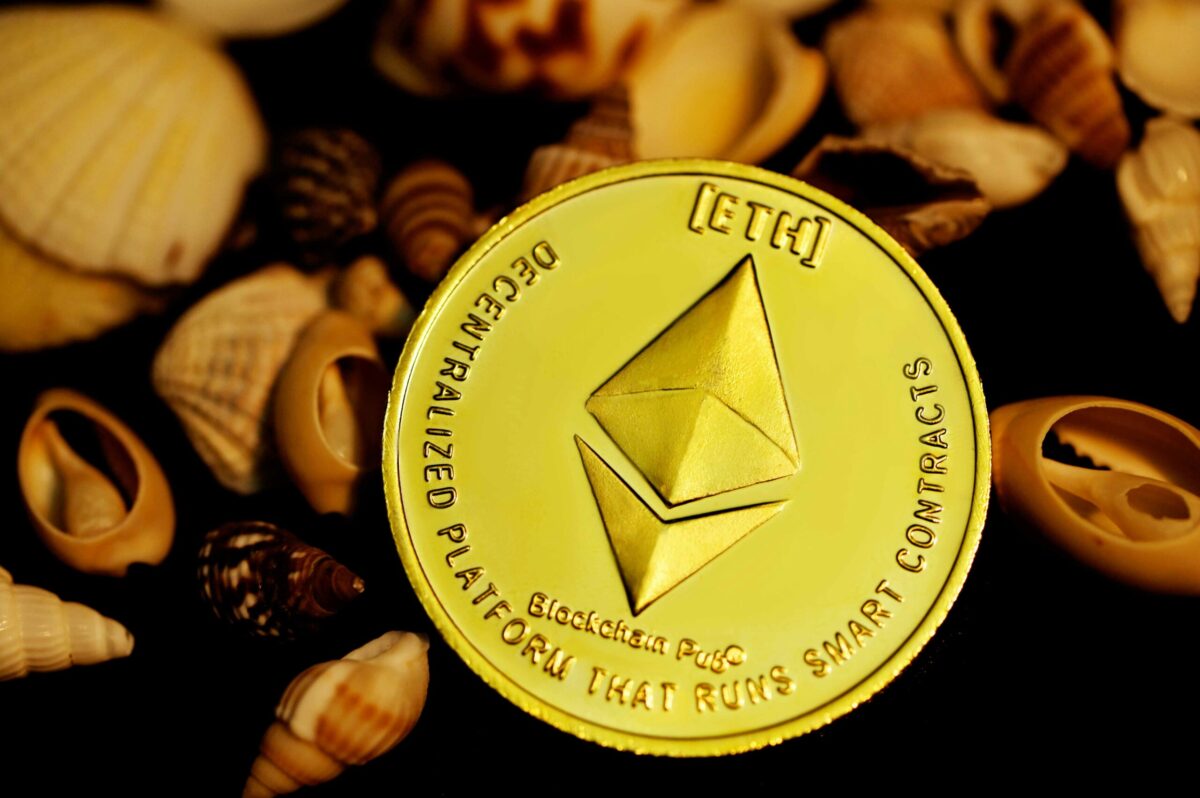The cryptocurrency market reached a historic milestone as the US Securities and Exchange Commission (SEC) approved nine spot Ethereum exchange-traded funds (ETFs) for trading on 23 July 2024.
These are from issuers including 21Shares, Bitwise, BlackRock, Fidelity, Franklin Templeton, VanEck, and Invesco Galaxy. Grayscale’s Trust and Mini Trust, on the other hand, are still awaiting final approval, but the same is expected soon.
The development came after the essential S-1 registration green light. Finalised on 22 July, it allows these ETFs to be listed on major stock exchanges such as Nasdaq, New York Stock Exchange (NYSE), and the Chicago Board Options Exchange (CBOE).
A spot ETF, or exchange-traded fund, tracks the price of an underlying asset and can be traded on the stock exchange like a share.
A spot ETF on Ethereum invests directly in $ETH, the second-largest cryptocurrency by market capitalisation.
This type of ETF enables investors to gain exposure to Ethereum without the need to buy, hold, and manage the cryptocurrency directly.
Coinbase Global Inc., the custodian for eight of the nine approved ETFs, celebrated the approval as a significant milestone for cryptocurrencies.
In a social media post, it highlighted the importance of this launch for the expansion and diversification of the crypto economy.
Coinbase CEO, Brian Armstrong, highlighted another crucial aspect of the launch, saying,
“Another huge step forward for regulatory clarity: ETH is not a security! We’ve been saying it for years and today the SEC finally made it official. Coinbase is proud to be the trusted partner and custodian powering 8 of the 9 newly approved ETH ETFs.”
Most of the newly approved spot Ethereum ETFs will offer competitive base fees ranging from 0.15% to 0.25%.
Several issuers, including Fidelity, 21Shares, Bitwise, Franklin Templeton, and VanEck, plan to waive fees for a specified period or until their products achieve a certain amount of net assets.
The Grayscale Ethereum Mini Trust also intends to waive fees for the first six months or until it reaches $2 billion in net assets.
Lower demand than Bitcoin ETFs
The approval of spot Bitcoin ETFs earlier this year attracted billions of dollars in new investments, largely due to Bitcoin‘s reputation as “digital gold”.
Crypto market maker, Wintermute, noted that spot Bitcoin ETFs accumulated $13.8 billion in the first 100 days of trading after it was launched earlier this year.
However, in contrast, some analysts predict that spot ETFs on Ethereum might see lower demand.
Ethereum is primarily used as a platform for smart contracts and decentralised applications (dApps) rather than as a store of value. This might limit investor interest compared to Bitcoin.
Recent market volatility has also led to greater caution among investors. Despite this, Ethereum continues to demonstrate resilience and innovation, as evidenced by its transition to Ethereum 2.0.
Research firm, Kaiko, has also drawn parallels with previous Ethereum-focused ETF launches, noting the underwhelming demand for futures-based ETH ETFs.
Data tracked by the firm revealed a sharp increase in ether implied volatility, indicating trader uncertainty about the ETF launch.
On the other hand, some industry experts are optimistic about the market impact of these newly approved spot Ethereum ETFs.
Predictions suggest that the ETFs could capture between 10% to 20% of the capital flows that spot Bitcoin ETFs have experienced since their launch.
This influx could significantly enhance the liquidity and visibility of $ETH in traditional financial markets.
SEC’s staking ban
Another reason why analysts think that Ethereum ETFs would see lower demand is primarily due to the absence of a staking mechanism.
With Ethereum’s shift from a Proof-of-Work (PoW) to a Proof-of-Stake (PoS) consensus mechanism through Ethereum 2.0, the network has achieved substantial energy efficiency.
Staking, an essential component of the Ethereum ecosystem post-transition, offers direct $ETH investors a steady income stream from staking rewards, including newly minted $ETH and transaction fees.
It also contributes to the network’s stability and security, indirectly boosting investor confidence.
However, the SEC has decided to exclude staking from Ethereum ETFs due to regulatory concerns, viewing it as a potential unregistered securities offering.
This decision aligned with the SEC’s broader enforcement actions against platforms such as Coinbase and Kraken.
Wintermute suggested that the absence of a staking mechanism may reduce institutional interest in Ethereum ETFs, leading to lower-than-expected demand compared to Bitcoin ETFs. The lack of staking diminishes Ethereum’s appeal as an ETF vehicle.
Furthermore, while issuers have various narratives to promote these ETFs, there is no unified story to attract a broad base of investors.
A new wave of crypto adoption
Nevertheless, the approval of spot Ethereum ETFs, alongside earlier spot Bitcoin ETFs, signals a new wave of crypto adoption.
These ETFs provide a familiar, regulated product for investors, ushering in a new era of adoption powered by the world’s largest asset managers.
Kaiko has predicted that Ethereum’s price will be sensitive to inflows from the newly approved spot Ether ETFs.
While futures-based $ETH ETFs launched last year saw lacklustre demand, the spot ETFs are expected to gather assets quickly.
As forecast by Wintermute, Ethereum ETFs could generate between $3.2 billion and $4 billion in inflows in their first year. This could potentially boost $ETH’s price by up to 24% by year-end.
At the time of press, the altcoin was changing hands for $3,455, up by over 2% daily.
As the market adjusts to these new investment vehicles, the long-term impact on $ETH’s price and market dynamics will become clearer.
The latest development also comes amidst the global blockchain industry marking the 10-year anniversary of Ethereum’s initial coin offering (ICO).
Launched by co-founder Vitalik Buterin on 22 July 2014, Ethereum raised over $18 million in Bitcoin, setting the stage for its transformative impact on the blockchain industry.
Over the past decade, Ethereum has evolved from a promising concept into a foundational platform for decentralised applications and smart contracts.
Its innovative approach has paved the way for numerous technological advancements and has become a cornerstone of the Web3 ecosystem.
The anniversary is being celebrated by the global blockchain community, recognising Ethereum’s significant contributions and ongoing influence.


